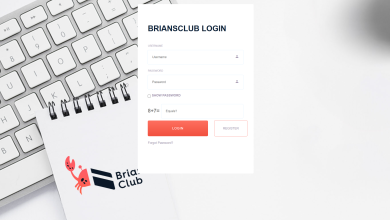Introduction
Scalability is essential for success in today’s fast-paced world of e-commerce. As your company expands, so will the demands on your e-commerce app. To meet client expectations and remain competitive, you must have a plan in place for properly growing your e-commerce app. This article will go over several tactics and best practices for scaling your ecommerce app development as your business expands.
Invest in a Solid Infrastructure
A solid infrastructure is required to support the growth of your e-commerce firm. This includes having the appropriate hosting solution, whether cloud-based or dedicated servers. Think about things like load balancing, redundancy, and server capacity. Investing in scalable infrastructure guarantees that your app will be able to manage additional traffic and transactions without crashing or slowing down.
Optimize for Performance
Optimizing performance is critical for offering a quality user experience and supporting a rising client base. Here are some tips for increasing the performance of your app:
- Caching: Use caching technologies to minimize server load and speed up page load times.
- Content Delivery Network (CDN): Use a CDN to spread your website’s information over numerous servers, lowering latency and improving load times for users all around the world.
- Compression: Reduce the amount of data that has to be delivered by compressing pictures, scripts, and other materials, resulting in quicker page loads.
Database Scaling
Your database is essential for keeping client information, product information, and purchase history. You may need to explore database scalability solutions when your e-commerce firm grows:
- Sharding: Sharding is the process of dividing your database into smaller, more manageable chunks. Each shard can be housed on its server, alleviating the strain on individual databases.
- Read Replicas: Implement read replicas to offload read-heavy queries from your primary database, hence improving performance.
- NoSQL Databases: NoSQL databases are built for scalability and can manage massive amounts of unstructured data.
Mobile Optimization
With a rising number of people purchasing online using mobile devices, optimizing your e-commerce software for mobile is critical. Make sure your app is responsive and user-friendly across a variety of screen sizes and devices. A mobile-friendly design may enhance the shopping experience and increase conversion rates.
Image Optimization and Content Delivery
High-quality photos and rich information are vital for e-commerce, but if not managed properly, they might slow down your app. To maintain a consistent user experience:
- Image Compression: Reduce page load times by compressing product photos without sacrificing quality.
- Lazy Loading: Use lazy loading to load pictures only as the user scrolls to them, rather than all at once.
- Content Delivery: Use a content delivery network to offer pictures and static material, which reduces server load and improves load times.
Scalable Payment Processing
The amount of transactions will rise as your e-commerce firm increases. Ascertain that your payment processing solution can grow with your company. Consider using a payment gateway that can manage big transaction volumes while still providing security for your consumers.
Security and Compliance
Security should not be sacrificed for scalability. Data security and regulatory compliance become increasingly important as your company expands. To secure your clients’ data, use solid security measures and remain up to speed on industry rules.
Monitoring and Analytics
Use powerful monitoring and analytics tools to keep a close check on the performance and user behavior of your app. This data may assist you in identifying bottlenecks, optimizing user flows, and making data-driven choices to increase the scalability of your service.
Load Testing
Load-test your e-commerce app regularly to see how it handles high traffic. This enables you to detect possible problems and bottlenecks before they affect your clients. Load testing assists you in making educated decisions about growing your infrastructure.
Content Strategy
E-commerce relies heavily on content. Your content approach should vary as your product catalog grows. As your content management system grows in size, be sure it can handle an increasing number of goods, categories, and pages. Prioritize SEO to generate organic traffic and help consumers locate what they’re looking for.
Customer Support and Communication
The amount of consumer queries and support requests may rise as your company expands. Maintain open lines of contact with your customers by implementing a scalable customer care system. Proactive customer service may increase client happiness and loyalty.
Cross-Channel Integration
Consider connecting your e-commerce app to additional platforms and channels including social media, marketplaces, and physical stores. Cross-channel integration may broaden your reach and client base, but it necessitates a scalable and adaptable infrastructure to manage data and transactions in real-time.
Conclusion
Scaling an e-commerce app as your company expands is a difficult task that demands careful strategy and execution. It takes into account not just technical aspects but also customer experience, security, and team management. You can guarantee that your e-commerce app remains competitive, responsive, and capable of supporting the ever-growing demands of your developing business by investing in infrastructure, optimizing performance, and being nimble. Stay alert to consumer feedback and industry developments, and you’ll be well-prepared to effectively handle the hurdles of expanding your e-commerce app.





